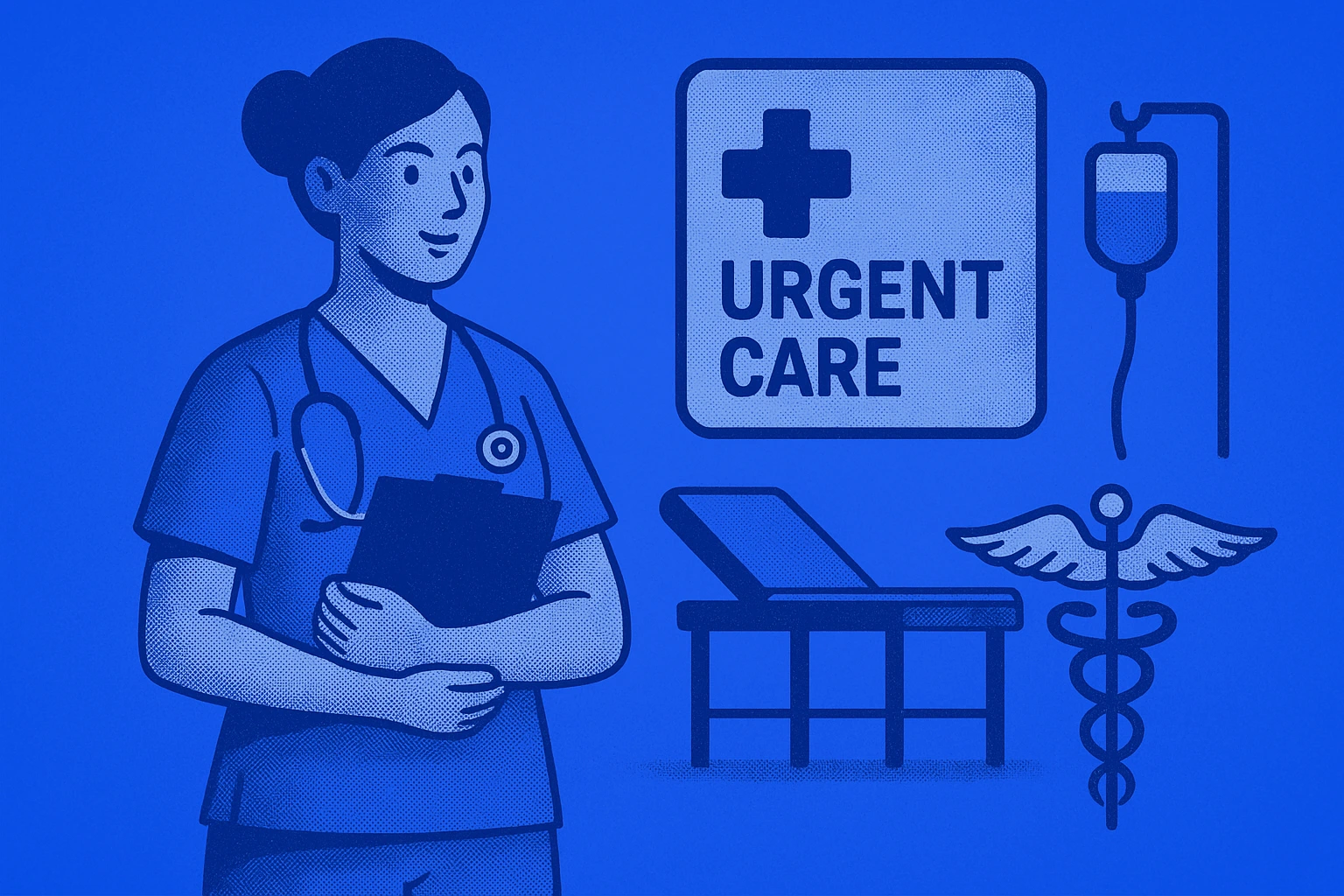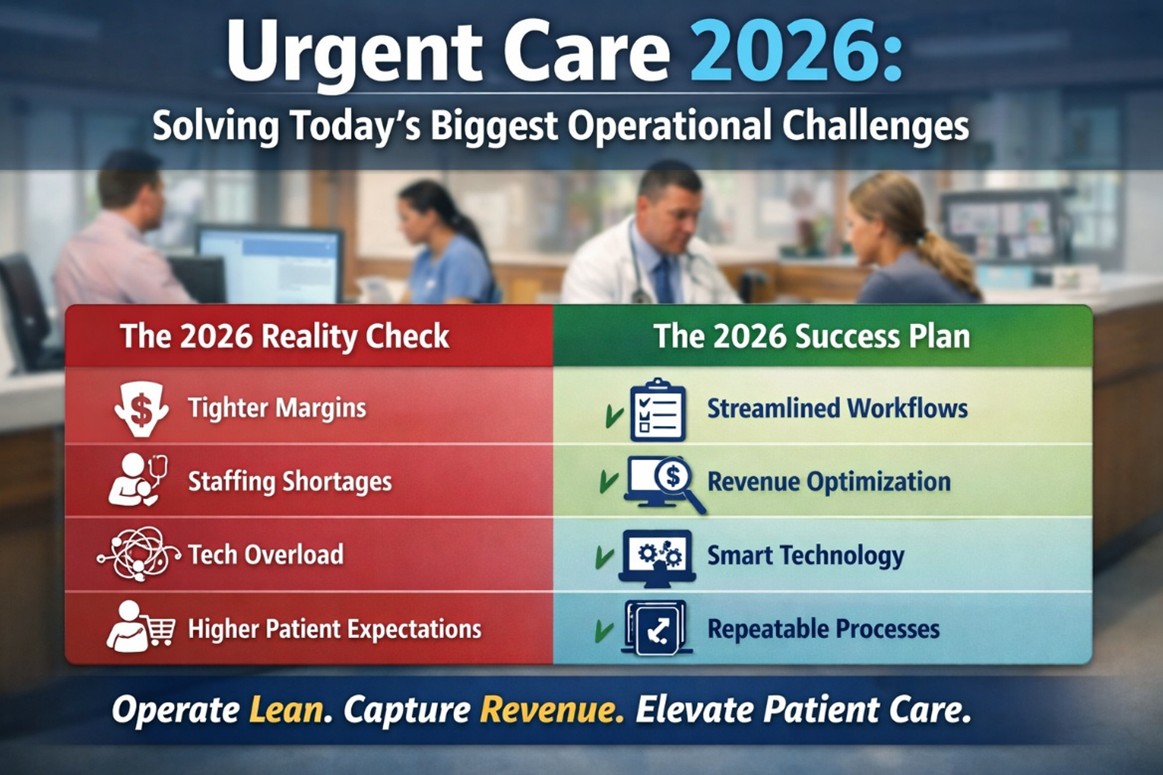

Effectively Utilize Medical Assistants in Your Urgent Care
Effectively using medical assistants enhances urgent care workflow, patient care, and staff satisfaction. Ask ChatGPT

Urgent care centers are vital for providing immediate medical attention, and medical assistants (MAs) play a crucial role in maintaining efficiency and high-quality patient care. Their versatility and broad skill set allow them to perform administrative and clinical tasks, making them indispensable team members. However, to truly harness the potential of medical assistants in urgent care, it's essential to utilize them effectively. Here's a guide on optimizing the role of MAs to enhance patient care, improve workflow, and boost the overall success of your urgent care practice.
One of the most effective ways to utilize medical assistants is by clearly defining their roles and responsibilities. MAs often juggle multiple tasks, such as taking vital signs, collecting patient information, assisting with procedures, and handling administrative duties. Clearly outline which tasks belong to them and which fall under the purview of other team members, such as nurses and physicians. This prevents overlap, ensures efficient task management, and helps MAs focus on the tasks where they can make the most significant impact.
Suggested roles for MAs in urgent care:
- Rooming patients and taking initial vital signs.
- Gathering medical histories and documenting information in electronic health records (EHR).
- Assisting with minor procedures, such as suturing, wound dressing, or splint application.
- Administering injections and preparing lab specimens for testing.
- Managing patient flow to reduce wait times and improve patient satisfaction.
1. Leverage Technology to Enhance Productivity
Modern urgent care centers rely heavily on technology, such as EHR systems and practice management software, to streamline operations. Medical assistants can be trained to proficiently use these tools, allowing them to manage patient information, schedule appointments, and follow up on test results more efficiently. This not only reduces the administrative burden on other staff but also minimizes the likelihood of errors.
Ways to integrate technology effectively:
- Train MAs in the use of EHR and other digital tools to document patient information quickly and accurately.
- Equip MAs with mobile tablets or devices for real-time data entry during patient visits.
- Utilize practice management software to help MAs manage patient schedules and billing tasks.
2. Promote Skill Development and Continuing Education
The healthcare landscape is constantly evolving, with new technologies, procedures, and best practices emerging regularly. Providing medical assistants with opportunities for continuing education and skill development ensures they remain competent and confident in their roles. Training sessions, workshops, and certification programs can expand their knowledge base, improve their clinical skills, and allow them to take on more responsibilities.
Areas for skill enhancement:
- Training in advanced clinical tasks like phlebotomy or administering electrocardiograms (EKGs).
- EHR system updates and data management best practices.
- Enhancing patient communication skills for better patient education and support.
3. Utilize MAs in Patient Education and Follow-Up
Medical assistants can be valuable resources in patient education, especially when it comes to explaining minor procedures, medication instructions, or aftercare protocols. Assigning MAs to this role not only frees up physicians’ time but also ensures patients leave the urgent care center with a clear understanding of their treatment plans.
Strategies for effective patient education:
- Have MAs provide discharge instructions and follow-up care information.
- Train MAs to answer common patient questions about procedures, medications, or health conditions.
- Use MAs to follow up with patients after their visits to ensure compliance with treatment plans and offer additional guidance if needed.
4. Empower MAs to Handle Administrative Tasks
In urgent care, administrative duties such as processing patient paperwork, updating medical records, and handling billing tasks can consume a significant amount of time. By empowering medical assistants to handle these tasks, physicians and nurses can focus on patient care. Administrative tasks like verifying insurance, collecting copays, and scheduling follow-up appointments can be seamlessly integrated into an MA's workflow.
Examples of administrative responsibilities for MAs:
- Collecting patient insurance information and managing billing inquiries.
- Responding to patient inquiries
- Managing paperwork that has to be forwarded to third parties
- Handling scheduling for follow-up appointments or specialist referrals.
- Assisting with inventory management by ordering medical supplies and checking expiration dates.
5. Incorporate MAs into Quality Improvement Initiatives
Medical assistants can play a vital role in quality improvement initiatives within the urgent care setting. Their frontline experience gives them insights into patient flow, procedural bottlenecks, and areas where patient satisfaction can be improved. Encourage MAs to participate in quality improvement meetings and contribute their observations and suggestions for process improvements.
Involvement in quality improvement:
- Include MAs in team meetings to discuss workflow optimization and patient care strategies.
- Encourage MAs to suggest changes to procedures that could enhance efficiency or safety. Solicit their input on the supplies and equipment, especially when new or replacement purchases are being considered.
- Engage MAs in patient satisfaction surveys and feedback collection.
6. Maintain a Collaborative Work Environment
An urgent care center thrives when all team members collaborate effectively. Medical assistants, nurses, physicians, and administrative staff should communicate openly and work together to meet the demands of patient care. Promoting a collaborative environment helps MAs feel valued and appreciated, boosting their job satisfaction and reducing turnover.
Tips for fostering collaboration:
- Hold regular team meetings to discuss roles, responsibilities, and ways to support one another.
- Recognize and reward the efforts of MAs in keeping the clinic running smoothly.
- Implement cross-training initiatives to help staff understand each other's roles and responsibilities.
Conclusion
Medical assistants are a critical component of any urgent care team, and their effective utilization can significantly improve the quality and efficiency of patient care. By defining clear roles, leveraging technology, promoting skill development, empowering MAs in patient education, and fostering a collaborative environment, urgent care centers can maximize the contributions of these valuable healthcare professionals. When used to their full potential, medical assistants can help your urgent care deliver top-notch patient care while keeping the practice running smoothly.
Embracing these strategies can lead to better patient outcomes, higher staff morale, and a more successful urgent care practice overall.
If you would like more information on how to effectively utilize medical assistants in your urgent care practice contact sales@urgentiq.com
More blog posts to read
Prefer to send an email? Send us your request at sales@urgentiq.com, and we'll coordinate with you directly.
We're thrilled that you're interested in joining us. Please fill out the form below to get started on your journey with UrgentIQ.




